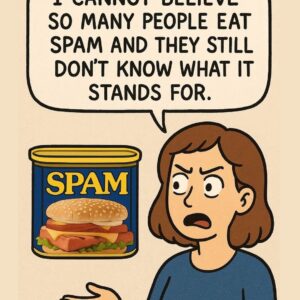In a move aimed at protecting certain individuals from potential retribution in the wake of a new presidential administration, President Joe Biden issued a series of last-minute pardons before stepping down. These pardons included high-profile figures such as Liz Cheney and Dr. Anthony Fauci, both prominent critics of President-elect Donald Trump. Biden’s aides indicated that the pardons were designed to prevent any possible backlash from the incoming Trump administration, particularly in light of ongoing investigations into the actions of those close to Biden and his administration.
However, the pardons, while offering legal protection from prosecution, have not fully shielded these individuals from further scrutiny. Legal experts quickly pointed out that while Biden’s pardons may prevent charges for specific past actions, they do not prevent individuals like Cheney and Fauci from being compelled to testify in congressional hearings or investigations.
The idea that those pardoned could still be subpoenaed for testimony in ongoing investigations is gaining traction among legal observers. For instance, U.S. House and Senate Republicans, led by figures such as Representatives Jim Jordan (R-OH) and James Comer (R-KY), could issue subpoenas to Cheney, Fauci, and others in order to obtain information related to potential wrongdoing within the Biden administration. Though the investigations into the Biden family and its business dealings have not been definitively stated, it’s possible that key figures on Biden’s pardon list would be summoned as witnesses in the future.
Jesse Binnall, a federal litigation attorney, emphasized the legal consequences of these pardons. According to Binnall, these pardons are actually beneficial for those seeking to prosecute Cheney, Fauci, and other high-profile recipients. In particular, he noted that the pardons would make it impossible for individuals to invoke the 5th Amendment, which protects individuals from self-incrimination, as an excuse to avoid answering questions in civil, criminal, or congressional proceedings. Binnall suggested that, in practice, these pardons could turn out to be a “double-edged sword.” By accepting the pardon, these individuals no longer have the constitutional protection against self-incrimination, and they may be compelled to testify openly about their actions.
Binnall’s comments resonated with some political observers who see potential legal consequences for individuals like Cheney and Fauci in the future. If Republican lawmakers decide to probe issues like Cheney’s role on the January 6th committee or Fauci’s pandemic response, they may now have the ability to compel them to testify under oath without the option of pleading the Fifth. For example, Cheney could be asked to clarify her involvement in the handling of evidence and testimony related to the January 6th investigation, while Fauci could be questioned about his public disagreements with Trump during the pandemic. Both figures, previously seen as adversaries of Trump, now find themselves in a precarious position legally.
While the pardons themselves were framed as a defense against what Biden’s administration perceives as politically motivated investigations, some critics argue that accepting the pardons could harm the public image of the recipients. Critics, including former Representative Adam Kinzinger, have pointed out that accepting a pardon could create an impression of guilt, even if the individuals involved have not been charged with a crime. Kinzinger argued that, by accepting such a gesture, individuals might unintentionally fuel suspicions about their conduct, despite the legal protections the pardons afford.
In an official statement, President Biden defended the pardons, emphasizing that they were issued to protect individuals from what he described as “baseless and politically motivated investigations.” Biden expressed concerns over the potential harm caused by prolonged investigations, especially when such actions targeted individuals who may not have done anything wrong. He noted that investigations, even in the absence of wrongdoing, could severely damage reputations and financial stability.
Despite the political and legal debates surrounding these last-minute pardons, Biden remains firm in his stance that his actions were justified given the exceptional circumstances of the situation. The broader implications of these pardons, however, may extend beyond the immediate political landscape, sparking ongoing discussions about the relationship between legal protections, public perception, and political maneuvering in the final days of a presidency.





